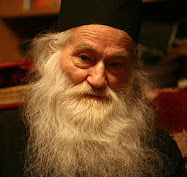
 Fantastic! Dupa ce a furat ideile scriitorului Dan Mihu pentru a deveni faimos fara merit, Cristian Mungiu face azi scandal la CNC. "Juratul Mungiu rastoarna masa la CNC", titra ieri Cotidianul. "Mungiu va scrie un raport despre problemele întâmpinate în calitate de jurat la concursul de scenarii organizat de CNC, iar filmul lui Radu Jude a fost exclus din competiţie pe motiv de „conflict de interese“", alerteaza Alexandra Olivotto. Sigur nu e o greseala de tipar si trebuia de fapt sa fie scris "Injuratul Mungiu"? Pentru ca acelasi Mungiu, pe cand era in alt juriu, a subtilizat ideiile lui Mihu. Ati uitat? Daca da, cititi aici Adevarul - Mungiu, acuzat că a furat tema filmului premiat la Cannes.
Fantastic! Dupa ce a furat ideile scriitorului Dan Mihu pentru a deveni faimos fara merit, Cristian Mungiu face azi scandal la CNC. "Juratul Mungiu rastoarna masa la CNC", titra ieri Cotidianul. "Mungiu va scrie un raport despre problemele întâmpinate în calitate de jurat la concursul de scenarii organizat de CNC, iar filmul lui Radu Jude a fost exclus din competiţie pe motiv de „conflict de interese“", alerteaza Alexandra Olivotto. Sigur nu e o greseala de tipar si trebuia de fapt sa fie scris "Injuratul Mungiu"? Pentru ca acelasi Mungiu, pe cand era in alt juriu, a subtilizat ideiile lui Mihu. Ati uitat? Daca da, cititi aici Adevarul - Mungiu, acuzat că a furat tema filmului premiat la Cannes.Haideti sa vedem si o parere sincera, adica neplatita de "centrala", despre "creatia" lui Mungiu, venita de la noul sef al Asociaţiei Criticilor de Film din New York, cea mai importanta asociatie de acest gen din Statele Unite. La împlinirea a 75 de ani de la fondarea Asociaţiei, preşedintele recent ales Armond White a trecut în revistă starea actuală a cinematografiei. Despre „4 luni, 3 săptămâni şi 2 zile” al lui Mungiu, şeful criticilor de film newyorkezi a declarat, potrivit „New York Magazine”, că nu e decât „o marotă bazată pe reproşuri liberale, un efect întârziat al «mândriei naţionale triumfaliste» pe care le-o imputa Susan Sontag americanilor”.
„Nu fac asemenea declaraţii ca să atrag atenţia asupra mea, ci pentru că eu chiar cred în ce spun. Trăim într-o epocă în care criticii sunt concediaţi dacă nu le plac destule filme. Oamenii nu vor să asculte ce-au de zis trâmbiţaşii industriei cinematografice. Publicul trebuie să audă adevărul!”
Film Critic Armond White about another TV-slick fraud like "4,3,2" ...
Dar chiar vreti sa aflati adevarul? Vreti sa va dati jos ochelarii de cal care vi s-au pus fata de ceea ce Osservatore Romano numea "un film sordid şi redundant"? Atunci cititi aici o adevarat cronica de film, semnata chiar de catre seful Asociatiei Criticilor din New York:
There Will Be Abortion
Romanian filmmakers haven't reinvented realism, but most America
By Armond White
4 Months, 3 Weeks and 2 Days
Directed by Cristian Mungiu
What’s wrong with Romanian movies? No recent foreign film has been more hyped than 4 Months, 3 Weeks and 2 Days, cutely dubbed 4,3,2 by Artforum. Yet there’s nothing cute about this story of two college girls seeking to meet a back-alley abortionist in Bucharest during Romania’s late 1990s Ceausescu era. 4,3,2 trudges through the dire tale as if, indeed, counting down to something momentous. It’s momentously drab, obvious and guilt-inducing. Director Cristian Mungiu’s big revelation is that abortion—like life under Ceausescu—is no fun. But neither is this film: another mystifyingly over-praised entry in what’s being sold as the Romanian New Wave.
Not since the Iranian movie fad of the 1990s has a national cinema so intimidated American film critics. But there was something real in the experiments Mohsen Makhmalbaf and Abbas Kiarostami posed with narrative, time, landscape and destiny. This Romanian fad is based on Liberal self-reproach; a hangover from what Susan Sontag criticized as Americans’ “triumphalist national self-regard.” Following the trends of European film festivals, critics distance themselves from popular taste and parade their political contrition—as if praising movies from a formerly repressed country apologized for the United State’s failure to intervene. Thus, the typical grimness of Romanian imports like 4,3,2, The Death of Mr. Lazarescu and 12:08 East of Bucharest gets touted as superior to regular art-movie fare.
Consider the basic deception: That today’s Romanian filmmakers have reinvented “realism.” This is far different than the Iranians’ sophisticated play with self-reflexive storytelling (such as Makhmalbaf’s great Salaam Cinema and A Moment of Innocence which condensed cultural history and social desperation into funny, tender and frightening sagas of local filmmaking practice). The Romanians pretend cultural impoverishment necessitated that they reinvent the wheel, and this impresses gullible critics who apparently never saw Rossellini’s Open City or John Cassavetes’ Shadows. But the Roumanians’ tedious long-takes, dour emphasis on “real time,” Dogma-derived denial of refined lighting and visual pleasure are deplorable scams. Mungiu’s conceits, shared with his peers Cristi Puiu and Corneliu Porumboiul, disturbingly suggest that cineastes have inherited Ceausescu’s fascistic egotism: Their movies make audiences suffer as they claim to have suffered.
Mungiu stages real-time scenes—hence 4,3,2’s quotidian title—offering the usual Romanian movie roundelay of bureaucratic bickering, near-impoverished living and unrelievedly glum characters. 4,3,2’s particular expose, no livelier than the rest, is especially canny in distinguishing itself as Abortion Noir: Bedraggled Otilia (Anamaria Marinca) helps her irresponsible dorm mate Gabita (Laura Vasiliu) obtain the procedure that Ceausescu’s regime outlawed. Their efforts are less suspenseful than tedious, but it pushes all the Left buttons. Even the hostile abortionist Mr. Bebe (Vlad Ivanov) is a stock villain. Yet, not even Snidely Whiplash silent movie curs got laid as part of their extortion schemes: When Otilia and Gabita come up short of his required fee and Mr. Bebe insists on sexing them both—and the girls agree—it’s undeniable that 4,3,2 is bullcrap.
We’re not expected to ponder the girls’ masochism because Mungiu elides the act of self-prostitution (which Artforum’s critic defends as “violation;” though how can there be violation with consent?). Still, by showing only the naked-muff aftermath, Mungiu accepts how Otilia and Gabita debase themselves into docility, stupidity, selfishness and crime. It fits the degraded sense of humanity that is now widely preferred in film culture. Mungiu’s theme: THERE WILL BE ABORTION!
That’s because Mungiu reduces “freedom” to the abortion politics. Otilia and Gabita’s characterizations are flimsier than even Juno (the professional hipster’s update of Madonna’s “Papa Don’t Preach”). These girls misuse their late-20th century feminist privilege by being biologically irresponsible and socially manipulative. Mungiu has not created a portrait of female oppression—a failing that becomes apparent when Otilia traipses through Bucharest at night looking to discard the aborted fetus. Her plight’s less interestingly than the Isela Vega character in Sam Peckinpah’s 1974 Bring Me the Head of Alfredo Garcia who sacrifices herself to that film’s bloody corpus burden. Critic Dennis Delrough suggested that Mungiu’s fetus is a bogus social/psychological fact compared to the head of Alfredo Garcia, but Mungiu’s U.S. dupes imagine that the fetus represents something profound. If Artforum can consider a fetus “not yet viable,” than a filmmaker who justifies Otilia and Gabita’s self-serving behavior should be seen as barbarous.
By strange coincidence, one of the strongest political pop albums made during the Ceausescu period was the British band The Fatima Mansions’ 1990 Viva Dead Ponies featuring the coruscating anti-fascist anthems “Blues for Ceausescu” and “Mr. Baby.” Singer-songwriter Cathal Coughlin posed “Mr. Baby” as a Ceausescu figure threatening all with his selfish, murderous vanity. 4,3,2’s abortionist-thug Mr. Bebe references that rock-and-roll rhetoric even though Mungiu’s techniques pretend to be artless. He shrewdly avoids scrutinizing Mr. Bebe too closely and so loses Coughlin’s complex personality sketch and overall vigor. Viva Dead Ponies was made for dancing and thinking; 4,3,2 merely prides viewers on feeling blue.
Remember how the Sex Pistols’ “Bodies” refused to sanction abortion as a social privilege, but scorned it as horrific, inhumane, a moral burden? Remember Mike Leigh’s 2004 Vera Drake distilling the abortion question into the rich aesthetic inquiry of Imelda Staunton’s hyper-clear close-up? Next to those pop landmarks, 4,3,2’s “realism” is insipid. It’s a throwback to the naivete of nascent feminism (Otilia stays angry at her sympathetic boyfriend) and lacks the emotional stability of such pre-feminist abortion films as Love with the Proper Stranger or The L-Shaped Room. By sentimentalizing Otilia and Gabita’s ignorant choices, Mungiu insults reality. For those who believe in abortion, Otilia and Gabita’s behavior needs no explanation; for those who don’t, none is offered. When a Romanian film is as obtuse as 4,3,2, it feels like a countdown to cinema’s termination.
Directed by Cristian Mungiu
What’s wrong with Romanian movies? No recent foreign film has been more hyped than 4 Months, 3 Weeks and 2 Days, cutely dubbed 4,3,2 by Artforum. Yet there’s nothing cute about this story of two college girls seeking to meet a back-alley abortionist in Bucharest during Romania’s late 1990s Ceausescu era. 4,3,2 trudges through the dire tale as if, indeed, counting down to something momentous. It’s momentously drab, obvious and guilt-inducing. Director Cristian Mungiu’s big revelation is that abortion—like life under Ceausescu—is no fun. But neither is this film: another mystifyingly over-praised entry in what’s being sold as the Romanian New Wave.
Not since the Iranian movie fad of the 1990s has a national cinema so intimidated American film critics. But there was something real in the experiments Mohsen Makhmalbaf and Abbas Kiarostami posed with narrative, time, landscape and destiny. This Romanian fad is based on Liberal self-reproach; a hangover from what Susan Sontag criticized as Americans’ “triumphalist national self-regard.” Following the trends of European film festivals, critics distance themselves from popular taste and parade their political contrition—as if praising movies from a formerly repressed country apologized for the United State’s failure to intervene. Thus, the typical grimness of Romanian imports like 4,3,2, The Death of Mr. Lazarescu and 12:08 East of Bucharest gets touted as superior to regular art-movie fare.
Consider the basic deception: That today’s Romanian filmmakers have reinvented “realism.” This is far different than the Iranians’ sophisticated play with self-reflexive storytelling (such as Makhmalbaf’s great Salaam Cinema and A Moment of Innocence which condensed cultural history and social desperation into funny, tender and frightening sagas of local filmmaking practice). The Romanians pretend cultural impoverishment necessitated that they reinvent the wheel, and this impresses gullible critics who apparently never saw Rossellini’s Open City or John Cassavetes’ Shadows. But the Roumanians’ tedious long-takes, dour emphasis on “real time,” Dogma-derived denial of refined lighting and visual pleasure are deplorable scams. Mungiu’s conceits, shared with his peers Cristi Puiu and Corneliu Porumboiul, disturbingly suggest that cineastes have inherited Ceausescu’s fascistic egotism: Their movies make audiences suffer as they claim to have suffered.
Mungiu stages real-time scenes—hence 4,3,2’s quotidian title—offering the usual Romanian movie roundelay of bureaucratic bickering, near-impoverished living and unrelievedly glum characters. 4,3,2’s particular expose, no livelier than the rest, is especially canny in distinguishing itself as Abortion Noir: Bedraggled Otilia (Anamaria Marinca) helps her irresponsible dorm mate Gabita (Laura Vasiliu) obtain the procedure that Ceausescu’s regime outlawed. Their efforts are less suspenseful than tedious, but it pushes all the Left buttons. Even the hostile abortionist Mr. Bebe (Vlad Ivanov) is a stock villain. Yet, not even Snidely Whiplash silent movie curs got laid as part of their extortion schemes: When Otilia and Gabita come up short of his required fee and Mr. Bebe insists on sexing them both—and the girls agree—it’s undeniable that 4,3,2 is bullcrap.
We’re not expected to ponder the girls’ masochism because Mungiu elides the act of self-prostitution (which Artforum’s critic defends as “violation;” though how can there be violation with consent?). Still, by showing only the naked-muff aftermath, Mungiu accepts how Otilia and Gabita debase themselves into docility, stupidity, selfishness and crime. It fits the degraded sense of humanity that is now widely preferred in film culture. Mungiu’s theme: THERE WILL BE ABORTION!
That’s because Mungiu reduces “freedom” to the abortion politics. Otilia and Gabita’s characterizations are flimsier than even Juno (the professional hipster’s update of Madonna’s “Papa Don’t Preach”). These girls misuse their late-20th century feminist privilege by being biologically irresponsible and socially manipulative. Mungiu has not created a portrait of female oppression—a failing that becomes apparent when Otilia traipses through Bucharest at night looking to discard the aborted fetus. Her plight’s less interestingly than the Isela Vega character in Sam Peckinpah’s 1974 Bring Me the Head of Alfredo Garcia who sacrifices herself to that film’s bloody corpus burden. Critic Dennis Delrough suggested that Mungiu’s fetus is a bogus social/psychological fact compared to the head of Alfredo Garcia, but Mungiu’s U.S. dupes imagine that the fetus represents something profound. If Artforum can consider a fetus “not yet viable,” than a filmmaker who justifies Otilia and Gabita’s self-serving behavior should be seen as barbarous.
By strange coincidence, one of the strongest political pop albums made during the Ceausescu period was the British band The Fatima Mansions’ 1990 Viva Dead Ponies featuring the coruscating anti-fascist anthems “Blues for Ceausescu” and “Mr. Baby.” Singer-songwriter Cathal Coughlin posed “Mr. Baby” as a Ceausescu figure threatening all with his selfish, murderous vanity. 4,3,2’s abortionist-thug Mr. Bebe references that rock-and-roll rhetoric even though Mungiu’s techniques pretend to be artless. He shrewdly avoids scrutinizing Mr. Bebe too closely and so loses Coughlin’s complex personality sketch and overall vigor. Viva Dead Ponies was made for dancing and thinking; 4,3,2 merely prides viewers on feeling blue.
Remember how the Sex Pistols’ “Bodies” refused to sanction abortion as a social privilege, but scorned it as horrific, inhumane, a moral burden? Remember Mike Leigh’s 2004 Vera Drake distilling the abortion question into the rich aesthetic inquiry of Imelda Staunton’s hyper-clear close-up? Next to those pop landmarks, 4,3,2’s “realism” is insipid. It’s a throwback to the naivete of nascent feminism (Otilia stays angry at her sympathetic boyfriend) and lacks the emotional stability of such pre-feminist abortion films as Love with the Proper Stranger or The L-Shaped Room. By sentimentalizing Otilia and Gabita’s ignorant choices, Mungiu insults reality. For those who believe in abortion, Otilia and Gabita’s behavior needs no explanation; for those who don’t, none is offered. When a Romanian film is as obtuse as 4,3,2, it feels like a countdown to cinema’s termination.
In foto dreapta, o alta dovada a "profesionalismului" ziarului anti-crestin Cotidianul: Mungiu e prezentat alaturi de un pretins White. O fi el alb dar adevaratul White e negru (foto stanga)!
Vezi si „4, 3, 2“ - nu vreau să văd aşa ceva cum nu vreau să mănînc mîncare proastă sau să vorbesc cu proşti
Cineastul Andrzej Zulawski, la Bucureşti, ca invitat al Festivalului B-EST


































































No comments:
Post a Comment